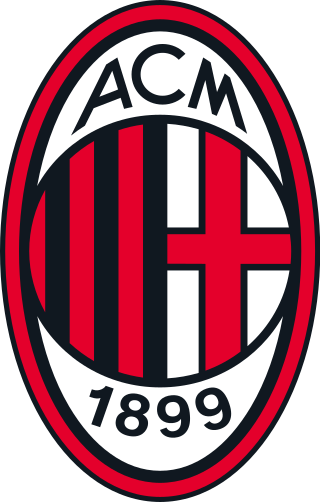Related Research Articles

Fascism is a far-right, authoritarian, ultranationalist political ideology and movement, characterized by a dictatorial leader, centralized autocracy, militarism, forcible suppression of opposition, belief in a natural social hierarchy, subordination of individual interests for the perceived good of the nation or race, and strong regimentation of society and the economy. Opposed to anarchism, democracy, pluralism, egalitarianism, liberalism, socialism, and Marxism, fascism is placed on the far-right wing within the traditional left–right spectrum.

Italy, officially the Italian Republic, is a country in Southern and Western Europe. It consists of a peninsula that extends into the Mediterranean Sea, with the Alps on its northern land border, as well as islands, notably Sicily and Sardinia. Italy shares its borders with France, Switzerland, Austria, Slovenia and two enclaves: Vatican City and San Marino. It is the tenth-largest country in Europe by area, covering 301,340 km2 (116,350 sq mi), and third-most populous member state of the European Union, with a population of nearly 60 million. Its capital and largest city is Rome; other major urban areas include Milan, Naples, Turin, Palermo, Bologna, Florence, and Venice.

Italian is a Romance language of the Indo-European language family that evolved from the Vulgar Latin of the Roman Empire. Italian is the least divergent language from Latin, together with Sardinian. Spoken by about 85 million people, including 67 million native speakers (2024), Italian is an official language in Italy, San Marino, Switzerland, Corsica, and Vatican City. It has official minority status in Croatia, Slovenian Istria, and the municipalities of Santa Tereza and Encantado in Brazil.

Football Club Internazionale Milano, commonly referred to as Internazionale or simply Inter, and colloquially known as Inter Milan in English-speaking countries, is an Italian professional football club based in Milan, Lombardy. Inter is the only Italian side to have always competed in the top flight of Italian football since its debut in 1909.

The Serie A, officially known as Serie A enilive in Italy and Serie A Made in Italy abroad for sponsorship reasons, is a professional league competition for football clubs located at the top of the Italian football league system. The winners are awarded the Coppa Campioni d'Italia trophy and the scudetto, a decoration that they wear on the jersey the season after the victory. It has been operating as a round-robin tournament for over ninety years since the 1929–30 season. It had been organized by the Direttorio Divisioni Superiori until 1943, the Lega Calcio until 2010, and the Lega Serie A ever since. Serie A is regarded as one of the best football leagues in the world and it is often depicted as the most tactical and defensively sound national league. Serie A was ranked the world's best national league in 2023 by IFFHS, and is ranked second among European leagues according to UEFA's league coefficient – behind the Premier League, and ahead of La Liga, Bundesliga and Ligue 1 – which is based on the performance of Italian clubs in the Champions League and the Europa League during the previous five years. Serie A led the UEFA ranking from 1986 to 1988 and from 1990 to 1999.

Juventus Football Club, commonly known as Juventus or colloquially as Juve, is an Italian professional football club based in Turin, Piedmont, who compete in Serie A, the top tier of the Italian football league system. Founded in 1897 by a group of Torinese students, the club plays in the Juventus Stadium.

Rome is the capital city of Italy. It is also the capital of the Lazio region, the centre of the Metropolitan City of Rome Capital, and a special comune (municipality) named Comune di Roma Capitale. With 2,860,009 residents in 1,285 km2 (496.1 sq mi), Rome is the country's most populated comune and the third most populous city in the European Union by population within city limits. The Metropolitan City of Rome, with a population of 4,355,725 residents, is the most populous metropolitan city in Italy. Its metropolitan area is the third-most populous within Italy. Rome is located in the central-western portion of the Italian Peninsula, within Lazio (Latium), along the shores of the Tiber Valley. Vatican City is an independent country inside the city boundaries of Rome, the only existing example of a country within a city. Rome is often referred to as the City of Seven Hills due to its geographic location, and also as the "Eternal City". Rome is generally considered to be the cradle of Western civilization and Western Christian culture, and the centre of the Catholic Church.

The Renaissance is a period of history and a European cultural movement covering the 15th and 16th centuries. It marked the transition from the Middle Ages to modernity and was characterized by an effort to revive and surpass the ideas and achievements of classical antiquity. Associated with great social change in most fields and disciplines, including art, architecture, politics, literature, exploration and science, the Renaissance was first centered in the Republic of Florence, then spread to the rest of Italy and later throughout Europe. The term rinascita ("rebirth") first appeared in Lives of the Artists by Giorgio Vasari, while the corresponding French word renaissance was adopted into English as the term for this period during the 1830s.

San Marino, officially the Republic of San Marino and also known as the Most Serene Republic of San Marino, is a European microstate surrounded by Italy. Located on the northeastern side of the Apennine Mountains, it is the fifth-smallest country in the world, with a land area of just over 61 km2 and a population of 33,642, as of 2023.

Sicily is an island in the central Mediterranean Sea, south of the Italian Peninsula in continental Europe and is one of the 20 regions of Italy. With 4.8 million inhabitants, including 1.3 million in and around the capital city of Palermo, it is the most populous island in the Mediterranean Sea. It is named after the Sicels, who inhabited the eastern part of the island during the Iron Age. Sicily has a rich and unique culture in arts, music, literature, cuisine, and architecture. Its most prominent landmark is Mount Etna, the tallest active volcano in Europe, and one of the most active in the world, currently 3,357 m (11,014 ft) high. The island has a typical Mediterranean climate. It is separated from Calabria by the Strait of Messina. It is one of the five Italian autonomous regions and is generally considered part of Southern Italy.

Vatican City, officially the Vatican City State, is a landlocked sovereign country, city-state, microstate, and enclave surrounded by, and historically a part of, Rome, Italy. It became independent from Italy in 1929 with the Lateran Treaty, and it is a distinct territory under "full ownership, exclusive dominion, and sovereign authority and jurisdiction" of the Holy See, itself a sovereign entity under international law, which maintains the city-state's temporal power and governance, diplomatic, and spiritual independence. The Vatican is also a metonym for the pope, the city-state's and worldwide Catholic Church government Holy See, and Roman Curia. The country has the world's smallest land area and the smallest population, with 764 citizens as of 2023.

Milan is a city in northern Italy, regional capital of Lombardy, the largest city in Italy by urban population and the second-most-populous city proper in Italy after Rome. The city proper has a population of about 1.4 million, while its metropolitan city has 3.22 million residents. The urban area of Milan is the fourth-most-populous in the EU with 6.17 million inhabitants. According to national sources, the population within the wider Milan metropolitan area is estimated between 7.5 million and 8.2 million, making it by far the largest metropolitan area in Italy and one of the largest in the EU. Milan is the economic capital of Italy, one of the economic capitals of Europe and a global financial centre.

The Axis powers, originally called the Rome–Berlin Axis and also Rome–Berlin–Tokyo Axis, was a military coalition that initiated World War II and fought against the Allies. Its principal members were Nazi Germany, Fascist Italy and the Empire of Japan. The Axis were united in their far-right positions and general opposition to the Allies, but otherwise lacked comparable coordination and ideological cohesion.

The unification of Italy, also known as the Risorgimento, was the 19th century political and social movement that in 1861 resulted in the consolidation of various states of the Italian Peninsula and its outlying isles into a single state, the Kingdom of Italy. Inspired by the rebellions in the 1820s and 1830s against the outcome of the Congress of Vienna, the unification process was precipitated by the Revolutions of 1848, and reached completion in 1871 after the capture of Rome and its designation as the capital of the Kingdom of Italy.

The regions of Italy are the first-level administrative divisions of the Italian Republic, constituting its second NUTS administrative level. There are twenty regions, five of which are autonomous regions with special status. Under the Constitution of Italy, each region is an autonomous entity with defined powers. With the exception of the Aosta Valley and Friuli-Venezia Giulia (2018–2020), each region is divided into a number of provinces.

The Italy national football team has represented Italy in men's international football since its first match in 1910. The national team is controlled by the Italian Football Federation (FIGC), the governing body for football in Italy, which is a co-founder and member of UEFA. Italy's home matches are played at various stadiums throughout Italy, and its primary training ground and technical headquarters, Centro Tecnico Federale di Coverciano, is located in Florence.

Società Sportiva Calcio Napoli is an Italian professional football club based in the city of Naples that plays in Serie A, the top flight of Italian football. In its history, Napoli has won three Serie A titles, six Coppa Italia titles, two Supercoppa Italiana titles, and one UEFA Cup.

The Kingdom of Italy was a state that existed from 17 March 1861, when Victor Emmanuel II of Sardinia was proclaimed King of Italy, until 10 June 1946, when the monarchy was abolished, following civil discontent that led to an institutional referendum on 2 June 1946. This resulted in a modern Italian Republic. The kingdom was established through the unification of several states over a decades-long process, called the Risorgimento. That process was influenced by the Savoy-led Kingdom of Sardinia, which was one of Italy's legal predecessor states.

Associazione Calcio Milan, commonly referred to as AC Milan or simply Milan, is an Italian professional football club based in Milan, Lombardy. Founded in 1899, the club competes in the Serie A, the top tier of Italian football. In its early history, Milan played its home games in different grounds around the city before moving to its current stadium, the San Siro, in 1926. The stadium, which was built by Milan's second chairman, Piero Pirelli and has been shared with Inter Milan since 1947, is the largest in Italian football, with a total capacity of 75,817. The club has a long-standing rivalry with Inter, with whom they contest the Derby della Madonnina, one of the most followed derbies in football.

Benito Amilcare Andrea Mussolini was an Italian dictator who founded and led the National Fascist Party (PNF). He was Prime Minister of Italy from the March on Rome in 1922, until his deposition in 1943, as well as Duce of Italian fascism from the establishment of the Italian Fasces of Combat in 1919, until his summary execution in 1945. As a dictator and founder of fascism, Mussolini inspired the international spread of fascist movements during the interwar period.